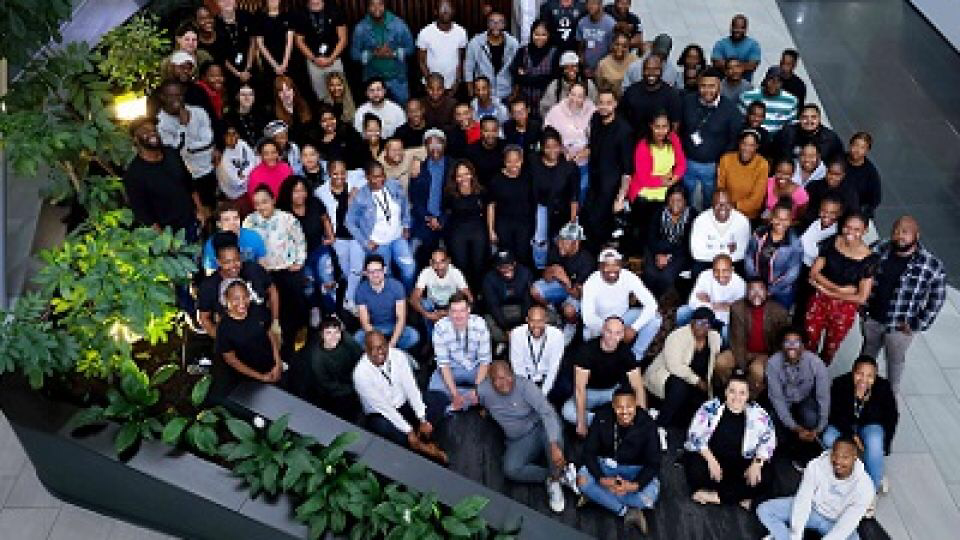Tech
SA’s Pineapple raises $21.3m in Series B funding. 2 other stories and a trivia

This line-up of stories will help you discover the latest happenings around the tech world, today.
1. SA’s Pineapple raises $21.3m in Series B funding.
South African insurtech startup, Pineapple, has announced raising $21.3 million in Series B funding, equivalent to ZAR400 million, to support its ongoing expansion.
Established in 2017, Pineapple offers customer services at 20% of the conventional insurance providers’ cost, allowing for significant premium savings.
The Series B funding round, led by new investors Futuregrowth, Talent10, and MIC, also saw continued support from existing backers, including Old Mutual ESD, Lireas Holdings, ASISA ESD Fund, and E4E Africa.
Pineapple’s Co-founder and CEO, Marnus van Heerden, noted that their tech and AI-powered model delivers affordable and comprehensive insurance to all South Africans.
Amrish Narrandes, head of Futuregrowth Asset Management’s private equity and venture capital, expressed enthusiasm for Pineapple’s innovative approach, aligning seamlessly with their investment philosophy, as they spearhead this funding round to further redefine the insurance landscape.
Trivia: A webcam connects to a computer over what interface?
A. HDMI
B. Wi-Fi
C. USB
D. Bluetooth
Find answer below
2. AltSchool Africa closes $3m for expansion
A Nigerian edtech startup, AltSchool Africa, is set to enter its next growth phase after raising $3 million in April 2023.
The funding round, previously undisclosed, included participation from Angaza Capital, a venture capital firm co-managing the Rwandan Innovation Fund.
Guided by Intellecap, an advisory firm focused on Asia and Africa, AltSchool’s expansion strategy is fully funded by the Rwandan Innovation Fund.
The African counterpart to the U.S. coding bootcamp BloomTech, was established in 2021 with a $30 million loan from the African Development Bank, the fund plays a pivotal role in positioning Rwanda as a technology hub in Africa.
AltSchool CEO, Adewale Yusuf, while speaking on the development, expressed gratitude for the Rwandan government’s support, emphasizing their instrumental role in AltSchool’s success since entering the market.
The startup, which offers online-only learning with a unique pricing model of $20-$50 per month and income-sharing agreements (ISA), is actively hiring for additional roles in Rwanda.
AltSchool’s growth aligns with a broader trend of African companies expanding operations in Rwanda, with Flutterwave and Paystack also making significant moves in the region.
The Rwandan Innovation Fund, beyond its initial $30 million AfDB loan, aims to attract an additional $30 million from private investors, contributing to 150 tech-enabled companies, ten incubators and accelerators, and 20 early-stage growth opportunities across Africa.
AltSchool, having supported approximately 20,000 learners across eight African countries, remains committed to addressing the skills gap and empowering young Africans for sustainable careers.
This recent funding round, marking AltSchool’s second after a $1 million pre-seed funding in 2022, solidifies its position in the edtech sector, with notable figures like Sola Akinlade and Folarin “Falz” Falana participating in earlier rounds.
3. Ghana’s KudiGo unveils innovative social commerce platform
KudiGo, Ghanaian fintech startup has introduced VerifiBuy, its social commerce platform, seeking to bolster trust in online transactions on social media.
Launched in November 2018, KudiGo has been instrumental in offering integrated mobile-based retail solutions across Ghana and Nigeria.
VerifiBuy, the latest addition, addresses the trust deficit in social media commerce by utilizing existing payment channels.
This platform enables cashless transactions with zero fraud risk for sellers and provides buyers with a 100% refund guarantee, holding funds in escrow until delivery confirmation.
Kingsley Abrokwah, CEO of KudiGo, highlighted the positive response during the pilot phase, with over 50 merchants processing $40,000 in transactions over three months.
Trivia Answer: USB
A webcam is a small digital video camera that connects to a computer to capture video and audio for online video calls. Laptop computers often include a thin built-in webcam integrated into the lid, just above the screen. Separate webcams that connect to a computer over a USB connection and clip to the top of a monitor are also widely available.
The most common use for a webcam is to participate in a one-on-one or group video call. You can make social calls through popular apps like Zoom, FaceTime, or Facebook Messenger.
Join the conversation
Support Ripples Nigeria, hold up solutions journalism
Balanced, fearless journalism driven by data comes at huge financial costs.
As a media platform, we hold leadership accountable and will not trade the right to press freedom and free speech for a piece of cake.
If you like what we do, and are ready to uphold solutions journalism, kindly donate to the Ripples Nigeria cause.
Your support would help to ensure that citizens and institutions continue to have free access to credible and reliable information for societal development.












